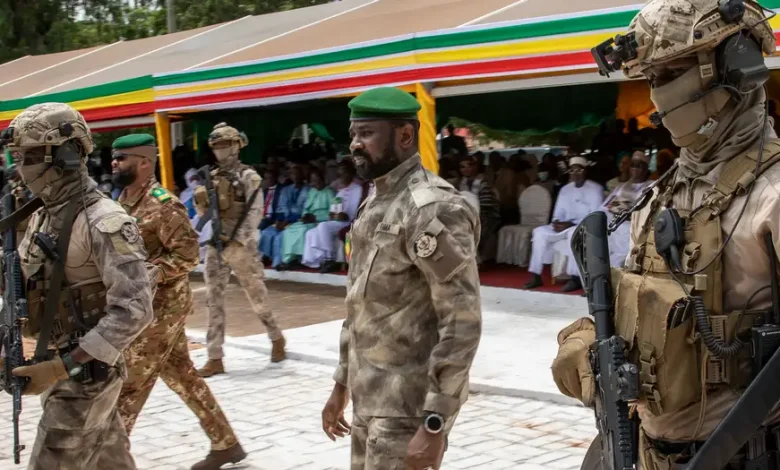Mali’s military government has announced the detention of several individuals, including two high-ranking Malian generals and a man identified as a French intelligence operative, over an alleged attempt to destabilize the country.
Security Minister Gen. Daoud Aly Mohammedine revealed the arrests on national television late Thursday, stating that the situation was “completely under control” and that investigations were underway.
The announcement followed days of speculation about the detention of senior army officers.
Details of the Alleged Plot
Authorities claim the suspected French operative, Yann Vezilier, acted on behalf of French intelligence, coordinating with political leaders, members of civil society, and Malian military officers.
The government says the conspiracy began on August 1 and aimed to undermine state institutions.
State TV broadcast images of 11 alleged plotters, while the security minister named the two generals involved:
- Gen. Abass Dembélé, a former governor of Mopti who was removed from his position in May after calling for an inquiry into alleged army abuses in Diafarabé.
- Gen. Néma Sagara, celebrated for her role in fighting insurgents during the 2012 crisis.
Crackdown on Dissent
This development comes amid a tightening grip on political freedoms in Mali.
In May, the junta banned political parties and dissolved civil society groups after a rare pro-democracy protest — the first since the military took power nearly four years ago.
The transitional government framed the arrests as part of efforts to protect national stability, describing the group as “marginal elements” within the armed forces and security services.
Regional Security Context
Mali, along with neighboring Burkina Faso and Niger, has struggled with a long-running insurgency by militant groups affiliated with al-Qaida and the Islamic State.
Following two coups, the junta expelled French forces and turned to Russia for military support.
However, violence has persisted, with extremist attacks increasing in recent months.
Extended Military Rule
In June, military leader Gen. Assimi Goita extended his tenure by an additional five years, abandoning earlier commitments to hold elections and return to civilian governance by March 2024.
The move drew criticism from political activists and international observers, who warned it could deepen instability.






















